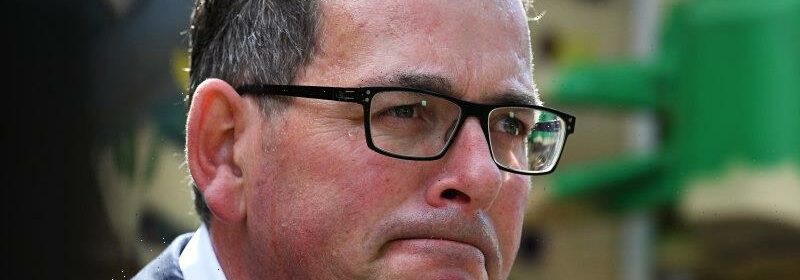Building trust in government is as important as catching wrongdoers

There have been media reports that the Independent Broad-based Anti-corruption Commission (IBAC) has raised questions about some dealings that have involved Premier Daniel Andrews.
Anti-corruption agencies like IBAC have a tremendously important role to play in our societies and they should strenuously hold politicians and public servants to account. Since its formation in 2013 IBAC has conducted many investigations and as a result, exposed problems and raised the level of public administration in Victoria.
The Premier Dan Andrews has been the subject of reports involving an IBAC investigation.Credit:The Age
There was resistance to the formation of IBAC. The common theme at the time was that Victoria was not mired in the depths of corruption that tainted pre-Fitzgerald Queensland, or that which passed for normal politics in NSW. However, when it got down to work it did find significant breaches in areas such as transport, education and corrections, to name a few. Each of these investigations led to improvements in government performance.
Comparatively, Australia is a low corruption country. Ordinary Australians can go about their daily business without the fear of being shaken down by corrupt public servants. Australian politicians do not take a cut of the budgets for which they are responsible and stash the funds in secret offshore accounts. But this does not mean that we should be complacent about corruption.
In rich countries corruption is more the exception than the norm, and in some ways that makes it all the more distasteful because a trust is breached. Corruption exists where officials trade, in an unauthorised manner, their entrusted authority. It is when officially they do things they should not do, like grant benefits, contracts or permits to cronies or mates, or do not do things they should do, like take a consideration to look the other way.
Chasing these down, anti-corruption agencies are only part of the response to unacceptable behaviour. Other agencies have a role to play – Ombudsman, Auditor General, and of course departmental leadership and management which sets the tone and organisational culture. When proposing the Commonwealth National Anti-Corruption Commission (NACC) the aim was for a strong commission with teeth.
Anti-corruption agencies are only part of the response to dealing with unacceptable behaviour.Credit:MagMos
What sort of teeth are appropriate? Do we want an agency that is like a watchdog and barks when danger looms, or do we want an attack dog that snarls and bites? It all depends on the problem we are trying to solve. In low corruption countries guard dogs do the trick and then hand over to a prosecuting authority if the behaviour warrants prosecution.
Internationally there are anti-corruption agencies which are clear attack dogs. China’s CCDI and India’s CBI are used by their governments against political opponents. In other countries, South Korea’s ACRC cannot investigate corruption cases and Taiwan’s AAC and Philippines’ OMB are under-funded and under-staffed to perform their duties effectively. The least corrupt countries in northern Europe do not have anti-corruption agencies as we know them. Highly desirable is an agency that can enforce anti-corruption laws impartially, without fear, favour or political interference. This is not as easy as it sounds to achieve.
When there is an allegation there is a tricky question of when should the case go public. There needs to be a commitment both to transparency and to due process. This is now being hotly debated as the NACC unfolds.
When should there be a public hearing and who should decide if this is in the public interest. A lot of preparatory work needs to be done before any rush to judgement. The consequences of getting it wrong are significant. Erring on the side of caution may allow some transgressors to slip through the net, but this gets down to the fundamental principles that underpin our justice system.
Most things that are reported to anti-corruption agencies are not corruption. They are breaches of codes of conduct, breaches of confidentiality, neglect of duty, improper disclosure, unprofessional conduct, bullying and harassment, and conflict of interest in all its major and minor manifestations etc. Some of these can be sorted by management, some need to be sorted by an external agency.
In a research project a few years ago we examined all the complaints made to the NSW ICAC (probably the most aggressive agency of its type in Australia) and of the 2000 or so complaints only one half of one per cent went to a hearing and about 2 per cent had a preliminary investigation. The overwhelming majority were sorted internally or externally, usually with advice to management about how to do things better. Very few cases involve politicians, but when they do they dominate our headlines.
The ills of public administration cover waste, fraud, mismanagement, as well as corruption. Different problems require different solutions and lumping them all together is not helpful. Anti-corruption agencies have an important role to play, but building integrity in our governments is every bit as important as catching those that do the wrong thing.
The Opinion newsletter is a weekly wrap of views that will challenge, champion and inform your own. Sign up here.
More from our award-winning columnists
Australia’s future: Claire O’Neill, Minister for Home Affairs, is responsible for espionage, terrorism, foreign interference, cyberwar, criminal syndicates, and more. She says the best of times in modern history may be behind us – Peter Hartcher.
The bank of mum and dad: To what degree does a parent’s income determine their child’s future income? It turns out, the apple can fall far from the tree – Jessica Irvine.
Australia as a republic: If you’re going to ask Australians to forgo the monarchy, you’re going to have to replace it with something more fitting. What if, instead of a monarch or a president, we had an Australian Elder? – Waleed Aly.
Most Viewed in National
From our partners
Source: Read Full Article

